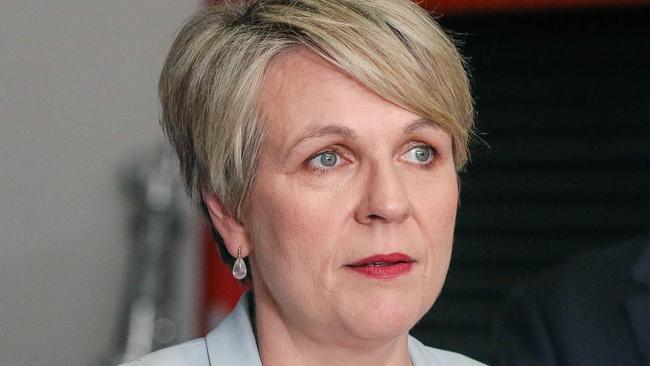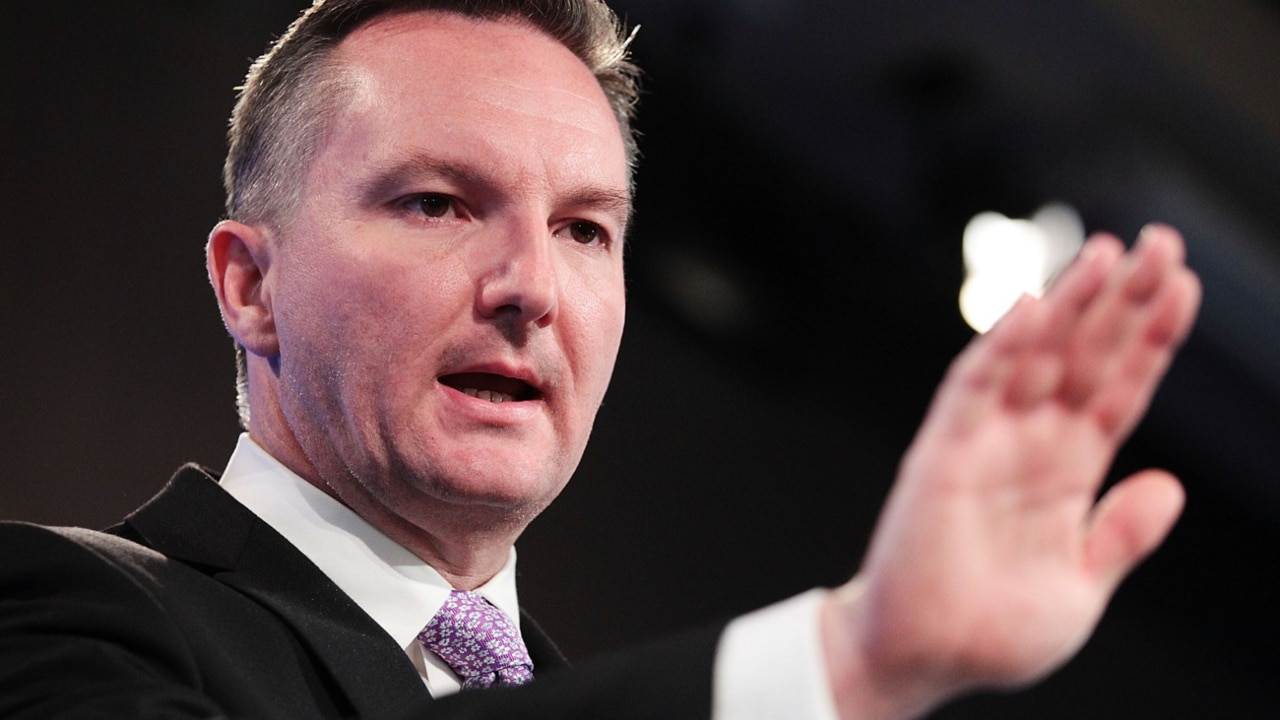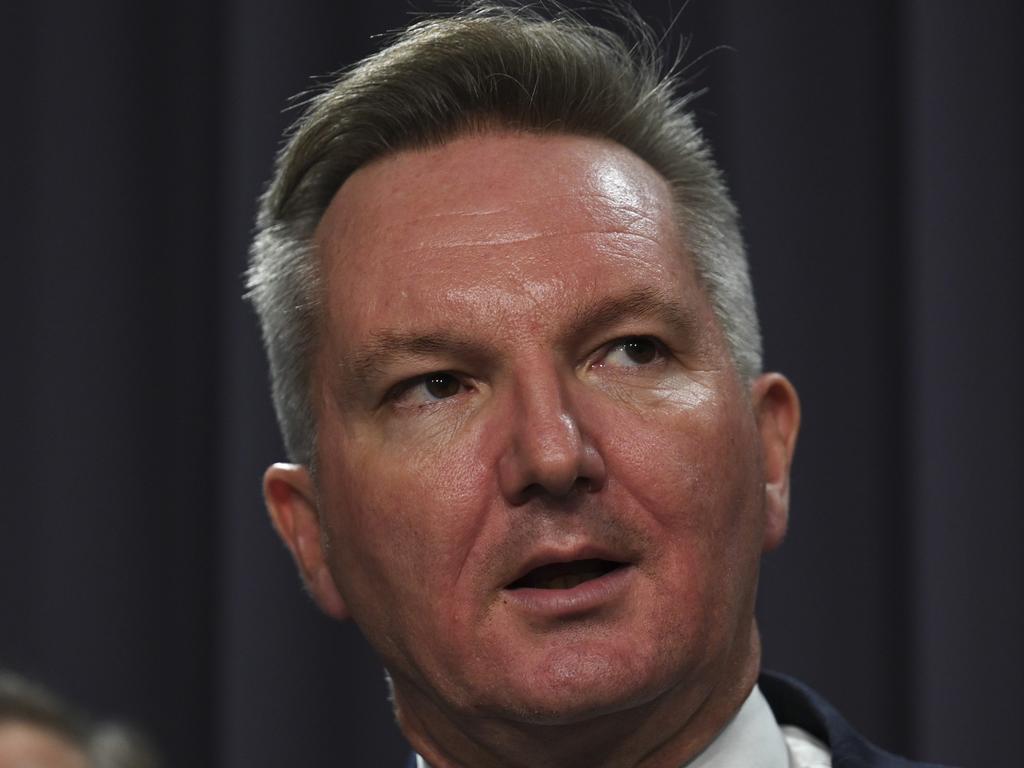Glencore and farmers in emissions technology war
Glencore has warned that scuttling its controversial carbon capture and storage project in the Great Artesian Basin would be the ‘death knell’ for onshore CCS.

Global mining giant Glencore has warned that scuttling its controversial carbon capture and storage project in the Great Artesian Basin would be the “death knell” for onshore CCS and damage the net-zero transition, amid splits in Anthony Albanese’s cabinet over the low-emissions technology.
With the federal and Queensland governments under pressure to block the Surat Basin project, The Weekend Australian can reveal Agriculture Minister Murray Watt urged Environment Minister Tanya Plibersek to call in the project under the Environment Protection and Biodiversity Conservation Act.
Revelations about Senator Watt’s intervention emerged as Hancock Agriculture, owned by Australia’s richest woman, Gina Rinehart, joined farmers in opposing the $210m project led by Glencore subsidiary Carbon Transport and Storage Corporation. While the billionaire mining magnate broadly supports the use of CCS technology, Hancock CEO Adam Giles said the risks of Glencore’s proposal to farming were “unacceptable”.
Queensland-based agriculture lobby group AgForce, which says it will put its “entire balance sheet” on the line to stop Glencore, has taken the Albanese government to the Federal Court in a bid to force Ms Plibersek to reconsider a 2022 decision that the project did not require EPBC assessment.
Glencore, which owns 23 mines in Australia including 17 coal operations, on Friday hit back against the wave of opposition to its plans to capture carbon dioxide by-product from the Millmerran coal-fired power station, 100km west of Toowoomba.
Farmers fear dumping carbon dioxide within the 1.7 million square kilometre basin, which covers 22 per cent of the continent, will cause irreparable harm and lead to millions of tonnes of industrial waste being stored in the Great Artesian Basin, which is the main water source for much of inland Queensland and NSW.
Glencore Global Coal Assets industrial lead Earl Melamed said the company had invested more than a decade’s worth of research into CTSCo since the site was earmarked by Geoscience Australia and the Rudd government in 2009.
“Frustratingly, we’re working with one hand tied behind our back. Why, if state and federal governments recognise the importance of carbon capture and storage, a proven technology used for more than 25 years internationally, would they not support companies like Glencore from taking sustainable action to deliver on their own climate policies,” Mr Melamed said.
“If the comprehensive scientific data, evidence and expert government agency reviews are trumped by false claims or political opportunism, our industry will be left with no credible abatement solution and that means jobs lost and regional communities ruined. It will also be the death knell for any future onshore CCS projects in Australia.”

Amid concerns the Albanese and Miles governments are preparing to review the project, Mr Melamed said CTSCo was “using technology that can help secure a long-term future for thousands of Australians and carve a path to net zero”.
“We’ve modelled multiple scenarios and diligently followed the process outlined by all levels of government. Importantly, the storage site located in the Surat Basin was identified by the federal government and the framework for CCS projects is backed in by legislation and allocated by the Queensland government,” he said. “If, after all that, Glencore is unable to invest in CCS, a proven emissions reduction technology that can deliver a low-carbon future and protect Australian jobs, what are resources and industrial companies meant to do?”
Glencore’s pushback ahead of a Senate inquiry into the project led by Pauline Hanson comes amid ongoing divisions among federal cabinet ministers over support for CCS projects to meet emissions reduction targets.
Multiple mining industry sources told The Weekend Australian the government was a “split house” on CCS because some MPs “believe CCS perpetuates fossil fuels”. Resources Minister Madeleine King has fought to keep CCS in the government’s arsenal despite opposition from some cabinet colleagues.
Email chains released under a Freedom of Information request reveal Senator Watt raised the issue with Ms Plibersek last year.
Senator Watt’s office emailed the Environment Minister on November 27 following a meeting with Brisbane-based beef company Australian Company Choice, the National Farmers Federation and Queensland Farmers Federation.
“They are very concerned about the project and the way that Glencore has gone about their submission and consultation etc,” the email said.
“Firstly, they are wondering what scope there may be federally to reconsider this project? Secondly, Minister Watt was hoping that we may be able to get a meeting for them with Minister Plibersek or at least the relevant adviser to discuss their concerns.”
Senator Watt on Friday said “as this matter is before the courts I’m limited to what I can say … but this decision, like every decision, should be made based on science with proper consideration to any potential impacts on precious farming land”.

Ms Plibersek’s spokeswoman declined to comment because of Federal Court action, with a hearing scheduled in August. AgForce will argue the project constitutes a controlled action under the EPBC because it involves matters of national environmental significance and should be approved under national environmental law.
Ahead of an Environmental Impact Statement decision by the Miles government, due by May 27, Queensland Environment Minister Leanne Linard said CCS projects “must meet strict regulatory requirements”.
In its Senate inquiry submission, Ms Rinehart's Hancock Agriculture said it was “inexplicable” that the initial application was not deemed a controllable action under the EPBC Act. “We submit that this is a flawed conclusion and in direct contradiction to the intentions expressed in the GAB Strategic Management Plan,” Mr Giles, a former Northern Territory chief minister, said.
Hancock Agriculture owns 12 properties across the Great Artesian Basin, including five that sit above the precipice aquifer into which Glencore wants to pump carbon dioxide waste.
“Hancock is broadly supportive of the use of carbon capture and storage where appropriate as a potentially valuable technology for the alleviation of the effects of carbon dioxide release into the atmosphere,” Mr Giles said.
“The risks of Glencore’s proposal to agriculture – not just our own operations, but more broadly, including long-term water supplies and feedlot security, are unacceptable given the … limitations of Glencore’s modelling work on the effect on the aquifer.”
CTSCo is worried that rising agricultural concerns could derail its “test injection project” during a key election year in Queensland. The company believes a rejection by the Queensland government of what is merely a demonstration project would set a precedent where onshore CCS projects in Australia are deemed too difficult to get off the ground. Australia boasts the world’s largest CCS system at Chevron’s Gorgon LNG facility on Barrow Island off the Pilbara coast.
CTSCo argues the project presents no risk to agriculture or the integrity of groundwater – a view backed by Geoscience Australia, which told the ABC last month: “Due to the basin’s immense size and the geology/hydrology of the area identified for the injection, this CO2 storage project will not threaten the viability of groundwater in the Great Artesian Basin.”
CTSCo says it has targeted a very deep aquifer with water about 2300m below ground near Moonie that is not fit for human consumption or use in irrigation.





To join the conversation, please log in. Don't have an account? Register
Join the conversation, you are commenting as Logout